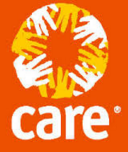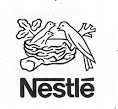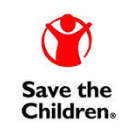Employer: UN Children's Fund
Location: Harare
Closing date: 04 Oct 2016
Unicef Zimbabwe is inviting proposals from individual consultants for the provision of Technical support to the Rural Water Sanitation and Hygiene Project in Zimbabwe
Background
The majority of poor people in rural Zimbabwe lack access to safe water and basic sanitation. At independence in 1980, Zimbabwe inherited a neglected rural WASH sector. Despite significant efforts to develop rural infrastructure, 98 per cent of those currently without an improved drinking water source live in rural areas; and 48 per cent of the rural population practice open defecation. Lack of rural WASH is a preventable cause of a significant disease burden for rural Zimbabweans. In 2008, an outbreak of cholera resulted in around 100,000 cases and 4000 deaths and cost the international community an estimated £100 million.
In order to address the rural WASH challenges in Zimbabwe, UNICEF and DFID signed a Memorandum of Understanding (MOU) for a grant of USD 50 million for the implementation of the rural WASH project ‘Improving Water Sanitation and Hygiene in Rural Areas of Zimbabwe’ in 30 low WASH coverage and cholera prone rural districts in the five provinces of Matabeleland North, Matabeleland South, Midlands, Mashonaland West and Masvingo. With the signing of an MOU between the Swiss Development Cooperation (SDC) and UNICEF in March 2013 for a USD 6 million grant, three more districts were added to make a combined total of 33 districts for the project.
The project, managed by UNICEF, will provide equitable and sustainable access to, and use of safe water supply to 2,375,000 people; and of these 1,140,000 will enjoy improved sanitation. Hygiene practices will be improved amongst the rural population in the 33 districts by October 2016.
The project is being implemented through government structures (National Action Committee – NAC structures at national, provincial and district levels as well as sub-district WASH structures) in partnership with NGOs/IPs that entered into PCAs with UNICEF. The NGOs facilitate for the activities, outputs and outcomes of the project through the District Water and Sanitation Sub- Committees of the project districts. Project implementation has been divided into 2 phases (phase 1 – June 2012 – December 2014 and phase 2 - January 2015 to June 2016; however phase 2 has been extended to October 2016)
Introduction
The RWP has been running in the 33 districts; the contractual PCAs with implementing partner NGOs will cease at the end of October under a current Low Cost Extension agreement. During the project life, stakeholders including donors and government have expressed a keen desire for the project to demonstrate sustainability, effectiveness and relevance for rural water supply needs.
Additionally, the Government of Zimbabwe through its National Action Committee for WASH has been part of and made commitments to various global and regional initiatives including Sanitation and Water for All (SWA) and African Ministerial council on Water (AMCOW), with the aim of contributing to WASH access and sustainability.
To this end, various activities have been planned and/or implemented, including the Rural WASH Management Information System (RWIMS). The RWIMS aims to contribute to sustainability of installed water points by providing a regularly updated status of water point functionality which will be used to contribute to timely system of response and repairs; currently, RWIMS has been implemented in all five RWP provinces with ongoing engagement of national and provincial government structures for ensuring regular updating of data is done and definition of roles of all stakeholders.
UNICEF contributes to the creation of an enabling policy environment for water service delivery as well as improvement for coordination of the various stakeholders. The Government of Zimbabwe (GoZ) is currently working with partners on operationalization of its Water policy, development of Sanitation Policy and review of the Rural Sanitation and Hygiene Strategy and reactivation and strengthening of donors/government coordination forum.
Additionally, UNICEF Zimbabwe Country office as part of its own regular programmatic approach undertakes year end reviews and monitoring as well as planning processes for subsequent AWP. The organization also uses a variety of tools and processes to track its different sectoral programmes to provide information and data for corrective action aligned with national and global contexts; currently, Zimbabwe is one of the eight case study countries contributing to the UNICEF global Rural WASH Evaluation currently running from September 2016 to February 2017.
The above mentioned activities are being monitored and supervised by a dedicated WASH Monitoring and Evaluation Specialist (M&E) under the leadership of the WASH Chief, with support from other WASH technical staff within the UNICEF Zimbabwe office. The WASH section recently lost two staff members and the M& E Specialist will be proceeding on a six month period of absence.
To ensure programme continuity and adherence to implementation timelines, it is critical to ensure the above mentioned time bound activities are undertaken promptly and without delay. Thus, the WASH Section seeks to engage a suitably qualified consultant to ensure the ongoing initiatives on monitoring, sustainability and effectiveness are continued uninterrupted
Objective (s)
To contribute to the sustainability of the RWIMS through technical support and facilitation for implementation of plans, reviews and recommendations on RWIMS including monitoring of the system and role definition of stakeholders
To provide technical support to roll out of components of the Water Policy, facilitation of UNICEF’s inputs into the development of the Sanitation and Hygiene Policy and strengthening of WASH sector coordination including liaison on global/regional initiatives including Sanitation and Water for All (SWA) and African Ministerial Council on Water (AMCOW)
To serve as focal person on behalf of the WASH section in the global Rural Water Supply evaluation through facilitation and coordination with government counterparts and other partners
Methodology & Expected Output
The consultant will undertake thorough review of all plans and recommendations affecting implementation of the RWIMS and liaise with relevant counterparts and stakeholders to ensure sustainability of the RWIMS
The consultant will be required to maintain effective communication with key external players as well as UNICEF WASH team on progress on areas of the consultancy (RWIMS, Surveys, Global Water Evaluation, WASH Sector coordination) through meetings, emails etc. and provide timely feedback and recommendations
The consultant will undertake field monitoring visits to project sites, on the approval of the supervisor and depending on programme requirements. It is estimated that the consultant will spend at least five days per month on field monitoring during which he provide on-site technical and managerial support at all levels.
The consultant will produce monthly reports documenting task and activities undertaken towards fulfillment of the consultancy deliverables. Where suitable, the report will include annexes pertaining to specific project issues or outputs such minutes of meetings.
The consultant will be based in the UNICEF Harare office
Major tasks and Deliverables
Task: Undertake review of all RWIMS plans and, make recommendation to UNCEF WASH for the sustaining of RWIMS and track progress on key sustainability indicators for RWIMS
Deliverable: Regular update of status of RWIMS available and timely corrective action proposed and shared with UNICEF and partners including NAC, PWWSC and DWSSC for improved sustainability
Task: Conduct progress monitoring and quality assurance activities for RWIMS through field visits to all project districts and monitor project implementation, provide the Provincial and District Water and Sanitation Sub-Committees with strategic guidance on project implementation and assist in addressing any challenges related to project implementation and sustainability.
Deliverable: Regular update of status of RWIMS available and timely corrective action proposed and shared with UNICEF and partners including NAC, PWWSC and DWSSC for improved sustainability
Task: Tracking project inputs and related outputs against agreed work plans and budgets for the and any support to DWSSC/PWSSC/NAC/IP for RWIMS. Follow up on Direct Cash Transfers to Partners to ensure timely liquidation within four months of fund disbursement.
Deliverable: All partners associated with projects in this consultancy adhere to work plans and budgets. At least not more than 10% of DCTs to partners more than 6 months old.
Task: Provide support and facilitation for the Global Rural Water Supply Programme Evaluation country visit to Zimbabwe. Liaise with government partners on field and logistics arrangements and coordination for the evaluation team and through government structures, facilitate access to key informants and relevant programme documents
Deliverable: Zimbabwe learnings on rural water supply adequately reflected as a completed case study contributing to the global evaluation
Task: Contribute to technical review of the documents and reports prepared/submitted by the global evaluation team including checking for factual errors. Communicate with and follow up on requests from the evaluation team and participate in related meetings.
Deliverable: Zimbabwe learnings on rural water supply adequately reflected as a completed case study contributing to the global evaluation
Task: Provide technical and secretarial support and required follow up action to the MoEWC on convening donor/government coordination meetings ; provide technical support for coordination of other sector planning and coordination activities including Annual Reviews and sectoral analysis
Deliverable: Improved evidenced based WASH planning and sector coordination with accompanying documentation
Task: Provide support to NAC for improved policy environment and implementation of global/regional initiatives/commitments through technical inputs into the following: Development of the Sanitation and Hygiene Policy, Review of the Sanitation and Hygiene Strategy and Operationalization of the Water Policy Support for GoZ participation/implementation of SWA and AMCOW activities
Deliverable: Improved WASH policy environment in line with government priorities and SDGs
Task: Timely advice and recommendations to UNICEF on any project aspects requiring special attention or corrective action for the effective and efficient implementation of the Rural WASH Project.
Deliverable: Effective management of the RWP.
Task: Compile end of year reports in agreed format for the Rural WASH Programme to contribute to the annual review process (including Results Assessment Module) and development of 2017 RWP.
Deliverable: Timely preparation and submission of end of year programme documentation.
Task: Undertake any other related activities as may be assigned by the UNICEF Chief of WASH and any other authorized UNICEF officer from time to time including support for donor monitoring and reporting.
Delivery: All assigned activities undertaken.
All deliverables should meet the expected quality as assessed by the Supervisor of the consultancy assignment. The Consultant will be expected to utilize UNICEF vehicles for official duty.
Reporting
The work must be documented with:
Monthly report submitted in hard and electronic copy, including electronic copy of the deliverables submitted during the month.
Interim deliverables to be presented in printed and/or electronic copy, as required.
At the end of the consultancy, consultant should submit a final report on overall project progress, challenges, proposed implementation adjustments, strategies and recommendations on way forward in both hard and soft copy.
Timeframe
The consultancy will be for a period of six months and will commence on the 15thOctober 2016 and end on the 15th April 2017
Consultancy Requirements
Education and Work Experience
A Master’s Degree in Civil Engineering, Environmental Health Sciences, Water, Sanitation and Hygiene or related field.
A minimum of 5 years relevant experience in rural Water Sanitation and hygiene management at national or international level
Knowledge of the Rural Water, Sanitation and Hygiene Sector in Zimbabwe is a pre-requisite.
Familiarity with the current Rural WASH project UNICEF processes will be an added advantage.
Excellent communication skills, both oral and written
Working knowledge of computers is essential
Possess initiative and a drive to achieve results
Ability to work effectively in multicultural environment
Ability to work with minimal supervision
Demonstrated capacity to work with and engage all levels of government
Supervision
The Rural WASH Consultant will be supervised by the Chief of WASH
HOW TO APPLY:
If interested and available, please submit your application letter, CV and a Technical and all-inclusive financial proposal detailing monthly professional fees, travel related costs (for an estimated 10 field travel days per month) and other miscellaneous consultancy costs for delivering the assignment to email address: hararevacancies@unicef.org by 04 October 2016. To quote “Rural WASH” as the email subject heading.
Only shortlisted candidates will be contacted
Popular Posts
Search For Jobs
Recent Posts
3/recent/post-list
Footer Menu Widget
Created By SoraTemplates | Distributed By Free Blogger Templates




